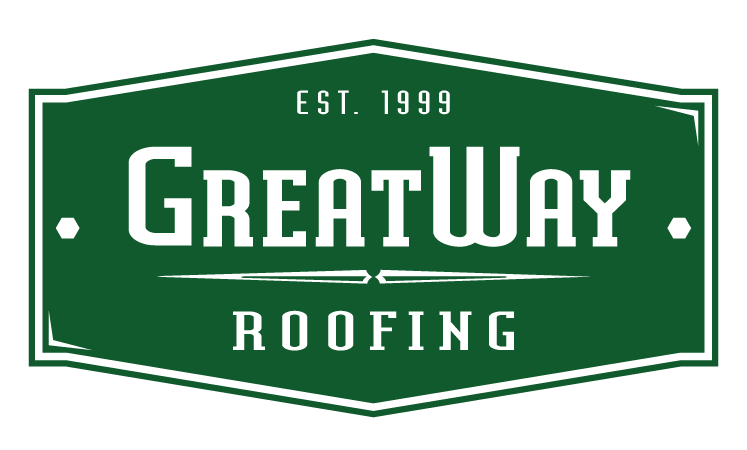One of the most crucial steps when embarking on a roofing project is obtaining an accurate estimate. This document serves as a financial blueprint for your project, outlining the costs associated with repairing or replacing your roof. A precise estimate not only helps in budgeting but also ensures that you avoid unexpected expenses.
This comprehensive guide will walk you through navigating roofing estimates and provide tips for securing the most accurate quote possible.
Understanding Roofing Estimates
A roofing estimate is a detailed document provided by a contractor that outlines the expected costs and scope of your roofing project. Understanding its components can help you make informed decisions and avoid surprises.
Key Components of a Roofing Estimate:
- Labor Costs: This includes the charges for the time and effort the roofing crew will put into your project. Labor costs can vary based on the job’s complexity, the crew’s experience, and the local labor market.
- Material Costs: The estimate should include a breakdown of the materials needed for the project, such as shingles, underlayment, flashing, and any other components. The quality of materials can significantly impact your roof’s total cost and longevity.
- Additional Services: These are extra costs that might not be immediately apparent. They can include debris removal, disposal fees, permits, and inspections. Ensuring that all potential additional costs are included in the estimate is essential.
- Warranty Information: Good roofing estimates will outline the warranties for materials and workmanship. Having warranty information in writing ensures that you have recourse in case of any issues after completing the project.
- Estimated Timeframe: The estimate should provide a timeline for the project, including the expected start and completion dates. This helps you plan accordingly and sets expectations for the project’s duration.
Requesting Multiple Estimates
Obtaining estimates from several contractors is advisable to get the best possible price and ensure accuracy. Multiple bids allow you to compare pricing, services, and overall value.
Tips for Requesting Multiple Roofing Estimates:
- Contact Reputable Contractors: Look for contractors with positive reviews, solid references, and a track record of successful projects. Online reviews, recommendations from friends or family, and local business directories can be good sources for finding reputable contractors.
- Provide Detailed Information: When requesting estimates, ensure each contractor has the same information about your roofing needs. This includes the size of your roof, its current condition, any specific issues you’ve noticed, and any particular preferences you have for materials or design.
- Schedule On-Site Inspections: A detailed roof inspection allows contractors to assess its condition and provide a more accurate estimate. Avoid estimates based solely on descriptions or photographs, which can lead to inaccuracies.
Preparing for the Roofing Estimate
Proper preparation can significantly impact the accuracy of your roofing estimate. Gathering relevant information and making decisions in advance can streamline the process and ensure that the estimate reflects your needs.
Estimate Preparation Steps:
- Gather Information: Collect details about your current roof, including its age, previous repairs or issues, and any specific problems you’ve noticed. This information helps contractors provide a more accurate assessment and estimate.
- Know Your Preferences: Decide on the type of roofing materials you prefer and any additional features you want, such as skylights or ventilation systems. This helps contractors understand your vision and provide a quote that aligns with your preferences.
- Check Insurance and Licensing: Verify that the contractors you are considering have the necessary insurance and licensing. This helps protect you from potential liabilities and ensures that the work is done according to local regulations.
What to Look for in a Roofing Estimate
When reviewing roofing estimates, it’s essential to scrutinize each component to ensure accuracy and avoid hidden costs.
-
Detailed Estimate Breakdown
The estimate should comprehensively summarize labor, materials, and other costs. A detailed estimate helps you understand what you are paying for and ensures no hidden fees.
-
Material Specifications
The estimate should include specific details about the materials used, including the brand, type, and quantity. This allows you to compare the quality and cost of materials across different estimates.
-
Scope of Roofing Work
The scope of work should be clearly defined, including removing old roofing, installing new materials, and any additional services such as repairs or upgrades. A well-defined scope of work helps prevent misunderstandings and ensures that all aspects of the project are covered.
-
Terms and Conditions
Review the estimate’s terms and conditions, including payment terms, project timelines, and any warranties or guarantees. It is vital to understand both parties’ expectations and responsibilities.
Avoiding Common Pitfalls
Several common pitfalls can affect the accuracy of a roofing estimate. Awareness of these can help you make an informed decision and avoid potential issues.
Pitfall #1: Low-Ball Estimates
Some contractors may provide an unusually low estimate to win your business, only to add extra costs later. Be cautious of estimates that seem too good to be true and ensure that all aspects of the job are covered. If an estimate is significantly lower than others, ask for a detailed breakdown to understand what might be excluded.
Pitfall #2: Vague Estimates
An estimate that needs more detail or clarity can lead to misunderstandings and unexpected costs. Ensure that the estimate includes a comprehensive breakdown of costs and a clear description of the scope of work. Avoid estimates that are overly vague or lack specific details.
Pitfall #3: Overlooking Warranties
Warranties are an important aspect of roofing projects. Make sure that the estimate includes information about both material and workmanship warranties. Warranties protect against defects or issues that arise after the completion of the project.
Questions to Ask Your Roofing Contractor
Asking the right questions can help clarify uncertainties and ensure you fully understand the estimate.
Important Estimate Questions to Ask:
- What is included in the estimate? Ask for a detailed breakdown of labor, materials, and additional costs. Ensure that the estimate covers all aspects of the project.
- Are there any potential additional costs? Inquire about any potential extra charges that might arise during the project. This helps you avoid surprises and ensure you are prepared for additional expenses.
- What is the timeline for the project? Understand the expected start and completion dates for the project. This helps you plan accordingly and sets expectations for the duration of the work.
- What type of warranty is provided? Confirm the details of the warranties for materials and workmanship. Warranties offer protection and ensure that you have recourse in case of issues after the project is completed.
Comparing Estimates and Making a Decision
Once you have collected and reviewed multiple estimates, it’s time to compare them and decide. Consider not only the cost but also the quality of materials, the reputation of the contractor, and the overall value offered.
Comparison Factors:
- Cost vs. Value: Weigh the cost of the estimate against the quality of materials and workmanship. A higher price doesn’t always guarantee better quality, so consider the overall value provided.
- Contractor Reputation: Research the contractor’s reputation, including reviews, references, and previous work. A reputable contractor is likelier to deliver high-quality work and stand by their estimates.
- Overall Scope of Work: Ensure that the estimate covers all necessary aspects of the project. Compare the scope of work across different estimates to ensure you get a comprehensive quote.
Finalizing the Contract
After selecting a contractor, carefully reviewing and finalizing the contract is essential. The contract should include all details outlined in the estimate and clearly define the terms of the project.
Contract Essentials:
- Detailed Scope of Work: The contract should include a comprehensive description of the work to be performed. A detailed scope of work ensures that both parties clearly understand the project requirements.
- Payment Terms: Clearly define the payment schedule and terms in the contract, which helps prevent misunderstandings and ensures that both parties agree on the financial aspects of the project.
- Warranties: Include information about material and workmanship warranties in the contract. This provides protection and ensures that you have recourse in case of issues after completing the project.
- Project Timeline: Specify the start and completion dates for the project in the contract. Clear project timelines help set expectations and ensure on-time completion.
Monitoring the Project
Once the roofing project begins, it’s important to monitor the progress to ensure it aligns with the estimate and contract terms. Regular communication with the contractor can help address any issues promptly.
Monitoring Tips:
- Inspect Progress Regularly: Check the work periodically to ensure that it meets your expectations. Look for discrepancies between the work and the details outlined in the estimate and contract.
- Communicate with the Contractor: Maintain open communication with the contractor throughout the project. Address any concerns or questions to ensure that issues are resolved promptly.
- Document Changes: Keep detailed records of any changes to the original estimate or scope of work, which helps track adjustments and ensures that you are aware of any modifications to the project.
Conclusion
Navigating roofing estimates is a critical step in ensuring a successful roofing project. By understanding the components of an estimate, requesting multiple quotes, preparing thoroughly, and asking the right questions, you can secure the most accurate quote for your roofing needs. Comparing estimates, finalizing the contract with attention to detail, and monitoring the project will help you achieve a smooth and satisfactory outcome.
A well-informed decision will help you manage your budget effectively and ensure that your roofing project is completed to your satisfaction. By following these tips, you can confidently navigate the process and ensure the success of your roofing project.

